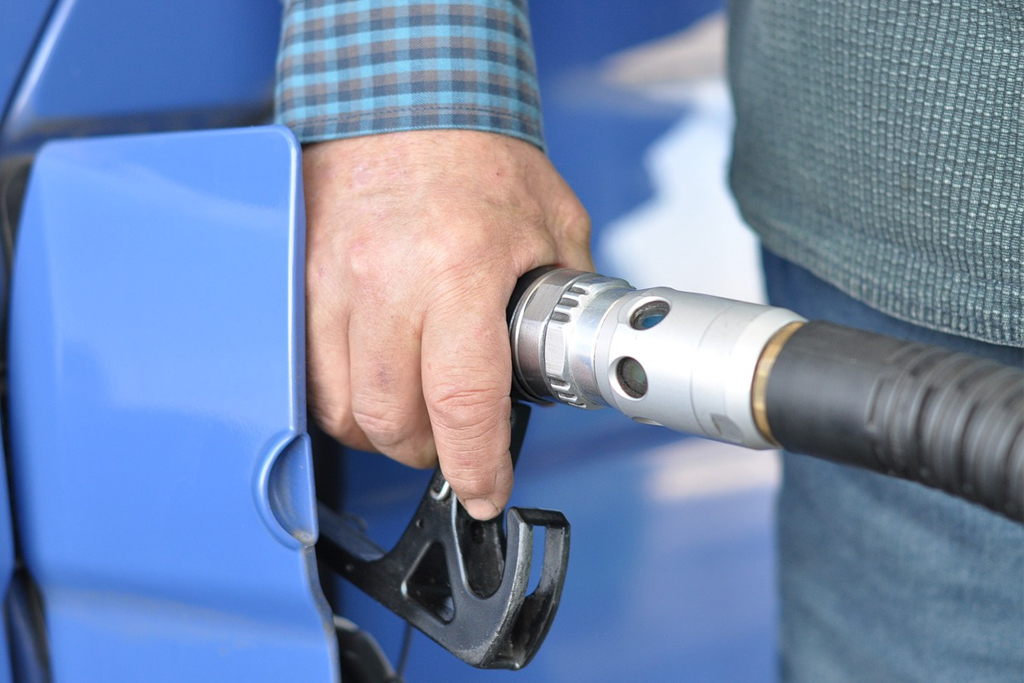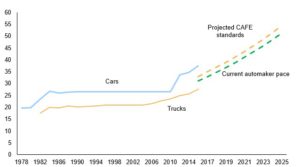
In 2012 the Obama Administration updated the Corporate Average Fuel Economy (CAFE) Standards which regulate the miles-per-gallon of light-duty vehicles e.g., vehicles weighing less than 10,000 lbs. CAFE standards aim to increase fuel economy to 54.5 mpg for light-duty vehicles by 2025 as illustrated in Figure 1. Each vehicle did not need to meet the target fuel economy, but each automaker’s fleet must meet the target on average and the requirement adjusted to the footprint of the car. In doing so, automakers who sell more trucks and SUVs would not get penalized more than one which sells mostly small cars.
Figure 1: CAFE Standards timeline in miles per gallon.
Now it seems likely that the Trump Administration will freeze the standards in 2020 granting automakers more leniency and time to reach the new CAFE standards. New standards will have to account for the changing automobile climate in the U.S. and recalculate the fuel economy outlook accordingly. Many automakers are buying credits, utilizing loopholes, and are reducing the weight of their vehicles for near-term compliance but they are struggling as Americans are increasingly opting for larger vehicles. The shift in buying behavior has tested U.S. automakers as they are challenged with providing buyers more choices of what they want (an enhanced fleet of larger vehicles) while complying with CAFE standards favoring automakers of small cars, electric vehicles, and hybrids.
One of these automakers, Ford, has found a way to comply with the existing CAFE standards while benefiting financially. Earlier this year Ford announced plans to drop most of their passenger cars (excluding the Mustang and Focus) in favor of trucks, SUVs, and vans by 2020. In doing so, Ford acknowledges its customers’ preferences for larger vehicles as trucks, SUVs, and vans accounted for nearly 80% of their sales in the first quarter of 2018. While Ford’s decision improves their margins (trucks and SUVs cost similar to sedans but are typically sold for $10,000+ more), it also makes it easier to comply with CAFE standards as rules for larger vehicles are less stringent.
Automakers have been reluctant to endorse a CAFE standard rollback as loopholes in the current regulations incentivize them to push larger vehicles. As light-duty vehicles become increasingly more fuel efficient in the U.S., the economy’s average fuel economy as a whole may stop improving due to the growing interest in larger vehicles.
ADI has been following the automotive industry closely evaluating the vehicle fleet, regulations, engine technologies, fuels, and assessing the implications for refineries e.g., gasoline demand, octane outlook, utilization rates, and blendstocks. Please contact us to learn more.
-Brandon Johnson




















